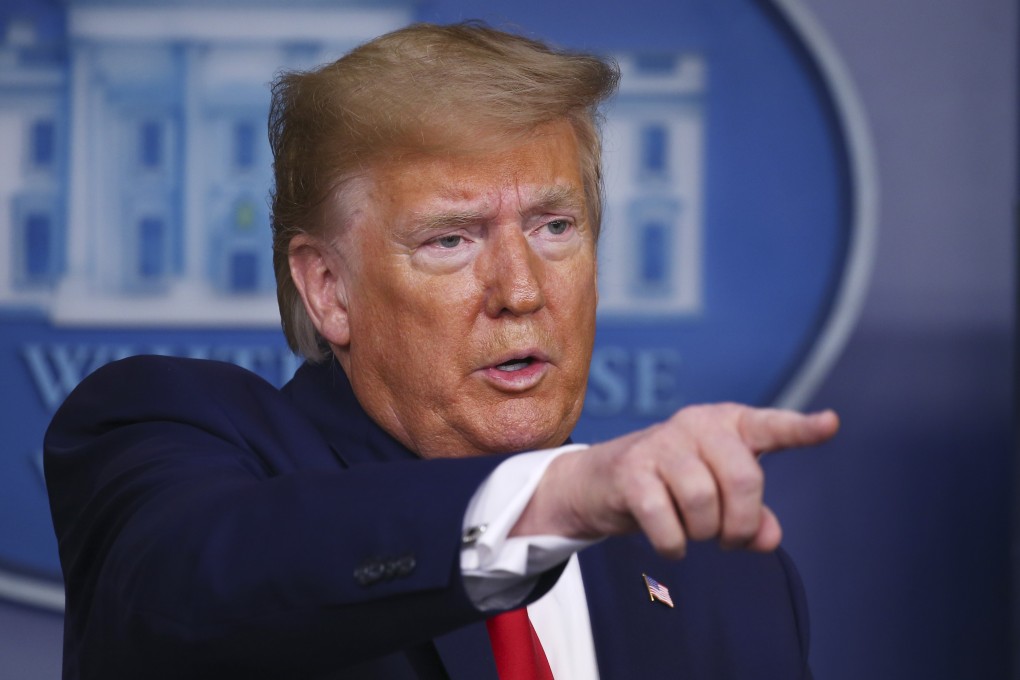Donald Trump’s latest attack on China over coronavirus ‘highlights challenge in repairing relations’
- The US President’s warned that China should ‘face consequences’ if it was ‘knowingly responsible’ for the Covid-19 outbreak
- Observers expect US hostility towards to China to remain and say Beijing will struggle to overcome that if it wants to improve matters

Donald Trump’s latest attack on China over the Covid-19 outbreak should serve as a reminder to Beijing of the difficult road that lies ahead if it wants to repair relations, analysts have warned.
In his latest barb at China, the US President said on Saturday that Beijing should face consequences if it was “knowingly responsible” for the coronavirus pandemic.
“If it was a mistake, a mistake is a mistake,” Trump said. “But if they were knowingly responsible, yeah, I mean, then sure there should be consequences,” he told reporters at a news briefing at the White House. He did not specify what actions the US might take.
In recent days the two sides have scaled back their rhetoric and stopped pointing the finger at each other over the handling of the crisis.
Instead, Trump has targeted a range of other targets, including the media, the Democrats, state governors and the World Health Organisation, accusing them of failing to appreciate his “incredible” performance.
But Chinese observers said the relationship between China and US would become more confrontational and Beijing had to learn to live with the hostility.